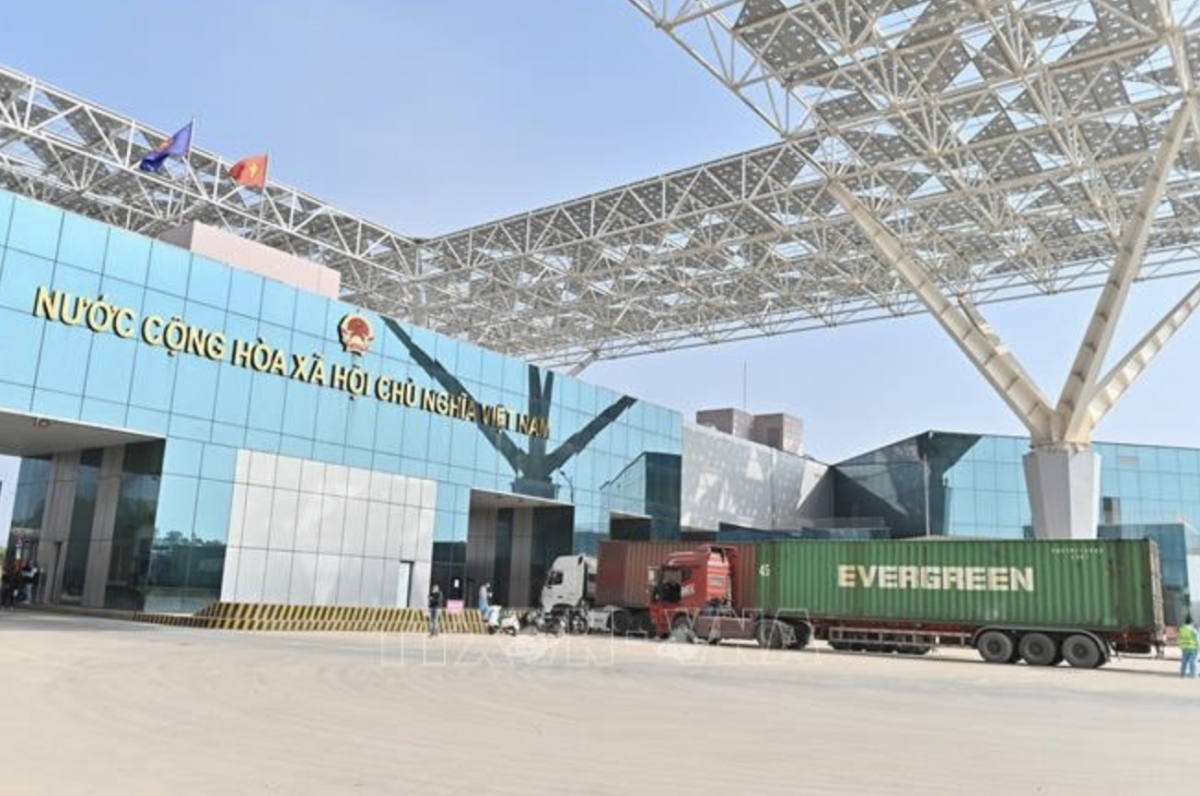
The upcoming official visit to Vietnam by Chinese Premier Li Qiang is expected to create more opportunities for expanding economic, trade, and investment cooperation between the two nations, according to experts.

China has long been Vietnam's largest trading partner, with bilateral trade growing at double-digit rates over the past decade. With multiple advantages in economic and trade cooperation, the trade relationship between the two countries has maintained stable and sustainable growth for many years.
Experts held that in 2024, Vietnam, China, and ASEAN countries will work together to step up negotiations on version 3.0 of the ASEAN-China Free Trade Agreement (FTA), further opening up economic and trade opportunities for countries in the region, especially for Vietnam and China.
Currently, both countries are actively promoting “hard connections” such as railways, highways, and border infrastructure, alongside upgrading “soft connections” like smart customs and border gates, to further enhance and streamline trade exchanges.
During the January-September period, two-way trade reached US$148.6 billion, with Vietnam's exports worth US$43.6 billio, up 1% from the previous year, while imports hitting US$105 billion, a year-on-year increase of 32.5%. With the strong trade momentum in the first half of the year, the figure is expected to hit US$200 billion by the end of this year.
In terms of investment, China takes the lead in the number of new foreign direct investment (FDI) projects in Vietnam, accounting for 29.3% of the total. It ranks second in total investment capital with US$3.2 billion, making up 13% of total foreign investment.
According to economic expert Vu Vinh Phu, former Deputy Director of the Hanoi Department of Trade, China, with its population of 1.4 billion and substantial purchasing power, represents a lucrative market for not only Vietnam but also many other countries. China imports a wide variety of key Vietnamese products, including textiles, footwear, electronics, and agricultural and aquatic products.
On the other hand, Vietnam imports significant quantities of agricultural products and consumer goods from China. Thus, Vinh said that Vietnam must improve the competitiveness of its domestic goods, aiming for a more balanced trade relationship to boost exports to China and reduce the trade deficit.
He also suggested that Vietnam should set up large warehouses at the border so that its goods can better enter the Chinese market.
Tapping into opportunities
During the 13th session of the Vietnam-China Economic and Trade Cooperation Committee last month, Chinese Minister of Commerce Wang Wentao proposed enhancing cooperation in investment and supply chains. He emphasised the need to implement previously agreed-upon investment cooperation documents and initiatives on the digital economy and green development. He also suggested Vietnam have policies to encourage energy projects, promote industrial park cooperation, and continue negotiations for the signing of a memorandum of understanding on cooperation in production and supply chains.
Wang also put forward solutions to boost trade, including holding negotiations and signing cooperation documents in farm produce trading, and urged stronger cooperation in e-commerce.
Vietnamese Minister of Industry and Trade Nguyen Hong Dien stressed the need to promote cooperation in investment and supply chains, with priority given to digital economy and green development.
He also informed the Chinese side that the Vietnamese government has issued policies and mechanisms to develop electric vehicles. The Ministry of Industry and Trade (MoIT) is also compiling a development strategy for the Vietnamese automobile industry to 2030 with a vision to 2045, which will include vehicles fuelled by electricity and green energy.
Recently, the MoIT, in collaboration with the Ministry of Agriculture and Rural Development, the Vietnamese Embassy in China, and the Vietnam Fruit and Vegetable Association, organised the first-ever Vietnam Fruit Festival in China.
At a meeting with Chinese Vice Premier He Lifeng, Dien suggested the Chinese side support the building of brands for several products of Vietnam’s strengths in the Chinese market, such as milk, agro-aquatic products, and processed goods; and facilitate Vietnamese goods’ deeper entry into China's market via retail systems and e-commerce platforms.
He also recommended the Chinese side to enhance connectivity and ensure smooth supply chain of goods in the areas of industry and agriculture between the two countries, encourage Chinese firms with advanced, energy efficiency and environmentally-friendly technologies to expand investment in Vietnam, while focusing on promoting the implementation of three railway routes connecting Vietnam and China, namely Lao Cai-Ha Noi-Hai Phong, Lang Son-Ha Noi and Mong Cai-Ha Long-Hai Phong.
Minister of Industry and Trade Nguyen Hong Dien had a working session with China's Minister of Industry and Information Technology Jin Zhuanglong in Beijing on September 30 as part of the Vietnamese official’s trip to China for the 13th meeting of the Vietnam-China Committee for Economic and Trade Cooperation.
Bình luận
Bình luận của bạn sẽ được xét duyệt trước khi đăng